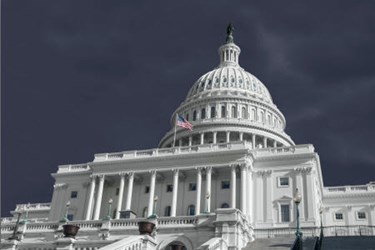U.S. Lawmakers Urge HHS, FDA To Update Off-Label Communication Policy
By Jof Enriquez,
Follow me on Twitter @jofenriq

Two United States House of Representatives committee chairmen recently wrote a strongly worded letter to Health and Human Services (HHS) Secretary Sylvia Mathews Burwell, urging her to let the U.S. Food and Drug Administration (FDA) clarify its position on drug and device off-label use, and to inform Congress about its current thinking on the matter.
FDA currently prohibits companies from promoting products for uses that the agency has not specifically approved, and manufacturers are held criminally liable if they violate this policy. However, recent litigation pitting FDA against pharmaceutical and medical device companies has resulted in favor of said companies, which challenged FDA's longstanding policy to restrict off-label communication.
These separate court cases involved the device company Vascular Solutions, Inc., as well as drug makers Amarin and Pacira. In the criminal case against Vascular Solutions, a federal jury in Texas unanimously handed down a not guilty verdict in favor of the company, according to Bloomberg BNA.
Despite these legal setbacks, which seemingly put FDA's stance on shaky legal ground, the agency has not updated guidance pertaining to off-label use. In their letter to HHS Sec. Burwell, Reps. Fred Upton (R-Mich.), chairman of the Energy and Commerce Committee, and Joe Pitts (R-Pa.), chairman of the Energy and Commerce health subcommittee, claimed that disagreements between HHS and FDA leadership are the cause for FDA's failure to complete draft guidance addressing the scope of permissible "scientific exchange."
According to a white paper on off-label use published by the Duke-Margolis Center for Health Policy, "scientific exchange" refers to communications such as manufacturer publication of original trial results and letters to the editor of scientific publications in defense of public challenges. More recently, this principle has been viewed as permitting manufacturers to provide off-label information to payer audiences, and also applies to manufacturer communications directed to lay audiences.
Device companies can infer FDA’s definition of scientific exchange through the “safe harbors” present in agency guidances: FDA permits manufacturers to disseminate off-label information as part of “scientific exchange” under prescribed circumstances.
Another potential reason why FDA is being delayed by its parent department (HHS) is monetary considerations. James Czaban, a Washington-based attorney at DLA Piper LLP, told Bloomberg BNA that False Claims Act settlements with medical product manufacturers are “a huge cash cow for the government,” and losing this source of income — and the power it gives the government over industry — may be giving the HHS pause over changes to its off-label policies.
Whatever the exact reason, if FDA continues to remain silent on policy pertinent to off-label communication, Reps. Upton and Pitts warn in their letter that, soon, "settlement agreements will be the only means by which policy is formulated – and it will be in an ad hoc manner lacking any semblance of consistency and cohesiveness."
Asserting that it is time for Congress to act, the representatives attached to their letter a bill to amend certain language of the Federal Food, Drug, and Cosmetic Act, introduced by the Duke-Margolis Center for Health Policy. Among the many proposals, the center suggested that FDA include in a future, updated, and comprehensive guidance document three key concepts: greater clarity around the definition of “labeling;” a good working definition of “scientific exchange” as introduced in previous documents; and greater detail around the scope of “intended use.”
The consumer advocacy group Public Citizen slammed the House bill for showing "a lack of appreciation for the role of the FDA in protecting patient health and a naive view of industry marketing practices." The group said FDA's off-label policy was always meant to be restrictive because "approval of a product for one use (say, to treat cancer) tells us nothing about whether it is safe and effective for another use (say, to treat migraines). Yet this bill would allow drug and medical device manufacturers to advertise and promote their products – both to doctors and directly to consumers – for uses never approved by the FDA."
Researchers at UCLA and Yale also previously offered their own proposals to improve FDA's off-label policy, including a new labeling system that would allow off-label information to appear in a product’s labeling literature with important limitations. Certain off-label uses could be completely prohibited, and others could require doctors to obtain informed consent from patients.
